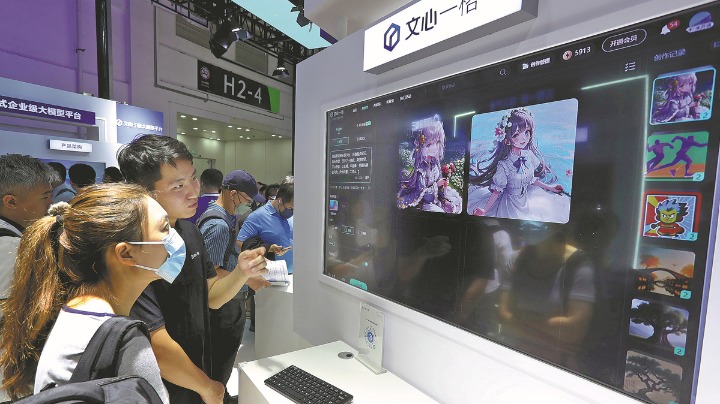The struggle between open-source and proprietary artificial intelligence (AI) systems is intensifying as large language models (LLMs) become a battleground for tech giants like Microsoft and Google, who are defending their proprietary technology against open-source alternatives like ChatGPT from OpenAI; while open-source AI advocates believe it will democratize access to AI tools, analysts express concern that commoditization of LLMs could erode the competitive advantage of proprietary models and impact the return on investment for companies like Microsoft.
Baidu CEO expresses optimism about the eventual public release of Ernie Bot and other ChatGPT alternatives in China under new AI regulations.
Baidu, China's leading AI technology and search leader, has outperformed Alibaba in the stock market since January 2023, indicating confidence in its AI growth prospects and its ability to integrate AI into its products and services. Baidu's diverse verticals and strong search data advantage have helped it maintain its AI leadership and mitigate the impact of weak physical goods spending. The company's investments in generative AI and autonomous ride-hailing further solidify its position in the Chinese economy.
Chinese tech giant Baidu has opened access to its Ernie bot to the public, indicating a more relaxed AI policy stance from Beijing, following the release of generative AI projects by Chinese companies in response to the popularity of OpenAI's ChatGPT.
Chinese tech firms Baidu, SenseTime, Baichuan, and Zhipu AI have launched their AI chatbots to the public after receiving government approval, signaling China's push to expand the use of AI products and compete with the United States.
Baidu's Ernie Bot generative AI service received 33 million questions on its public debut, becoming the most popular app in China, but faced challenges in answering some queries and providing fair responses, highlighting the difficulties of public chatbot services in the country's tightly controlled speech environment.
Chinese tech giant Baidu is making a comeback with its premier AI chatbot, Ernie, attracting significant attention and excitement, signaling the potential for a resurgence in Chinese tech, although challenges such as US export controls and increasing authoritarianism pose risks to its success.
Generative artificial intelligence, particularly large language models, has the potential to revolutionize various industries and add trillions of dollars of value to the global economy, according to experts, as Chinese companies invest in developing their own AI models and promoting their commercial use.
Chinese tech giant Baidu has launched over 10 new AI applications, including a generative AI-integrated word processing app called WPS AI, following the public release of its Ernie chatbot.
The development of large language models like ChatGPT by tech giants such as Microsoft, OpenAI, and Google comes at a significant cost, including increased water consumption for cooling powerful supercomputers used to train these AI systems.
Alibaba has announced that it will make its artificial intelligence model, Tongyi Qianwen, available to the public, signaling regulatory approval to mass-market the model and highlighting China's efforts to support AI development.
Japan is investing in the development of its own Japanese-language AI chatbots based on the technology used in OpenAI's ChatGPT, addressing the limitations of English-based models in understanding Japanese language and culture.
Full-stack generative AI platform, Writer, has secured $100 million in a Series B funding round led by ICONIQ Growth, with participation from WndrCo, Balderton Capital, and Insight Partners, as well as Writer customers Accenture and Vanguard; the funding will be used to invest in industry-specific language models and add capabilities to its models, enabling organizations to accelerate growth, increase productivity, and ensure governance.
